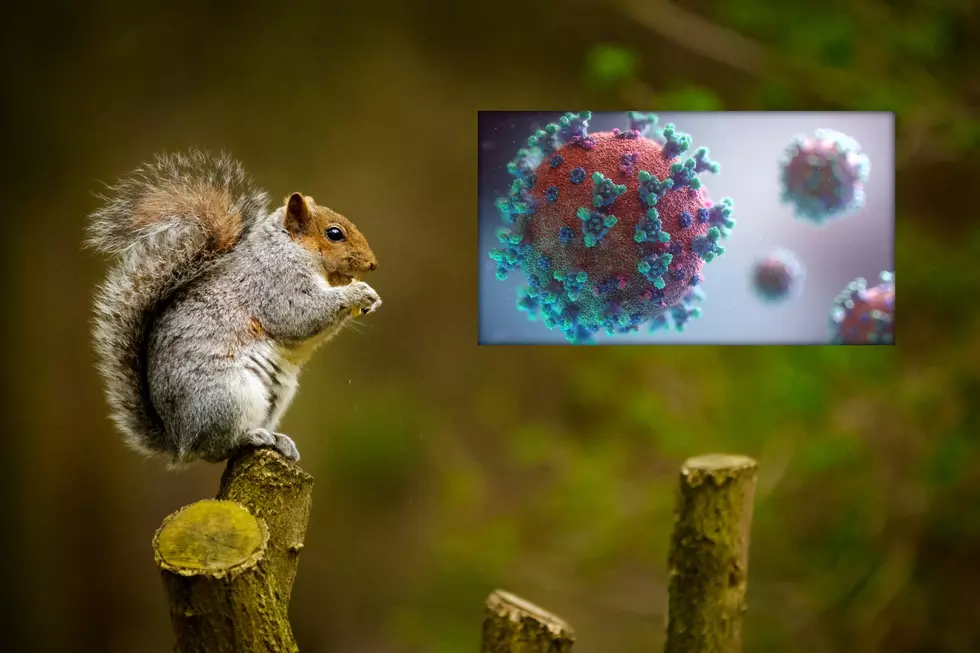
Can It Infect Me? ‘Squirrelpox’ Virus Found in the Capital Region
I don't know about you, but I've had just about enough with new, unforeseen viruses hitting us in the Capital Region.
Just as the fervor around COVID-19 was beginning to die down, we started to hear rumors of something called monkeypox, and soon after that, confirmed cases began popping up in surrounding communities. Even polio had its brief return to the headlines, as a Rockland County, NY resident was diagnosed with it last week.
Now, another "pox" is in headlines, but worry not, this one may not be as dangerous as the rest.

'Squirrelpox' Found in the Capital Region, But What Is It?
As reported by ABC News 10 in Albany, a local squirrel was spotted by a Capital Region resident with multiple lesions on its face and arms, and was later discovered to have a virus called squirrel fibromatosis.
In layman's terms, it has something called "squirrelpox".
Of all times for an animal in the Capital Region to be seen with some form of "pox", this is probably the worst. The monkeypox virus has been in headlines in recent months for its flu-like symptoms, as well as its uncomfortable-looking lesions that it can cause on the body.
What about squirrelpox, though? Could it have the same impact on a human who were to come in contact with it?
Here's a video showing a squirrel that appears to be infected. Before you watch it, keep in mind, that these squirrels can look a bit grotesque when they have this condition. Watch at your own risk.
In a word, no, this will not impact a human should one be in contact with the virus.
Squirrelpox is described as a leporipoxvirus by ABC News 10, which infects rabbits, hares, and squirrels. The virus is often spread by mosquitoes or other biting insects, which is how it travels from squirrel to squirrel.
So, luckily, this development won't have any impact on the population in the Capital Region. Those who come in contact with monkeypox, however, won't be as lucky, as that virus is described as a orthopoxvirus.
Other orthopoxviruses include: Camelpox, Ectromelia virus, Horsepox virus, Raccoonpox virus, Skunkpox virus, Taterapox virus, Uasin Gishu virus and Volepox virus, all of which could infect a human.
All of this information should be proof of the following: if you see a wild animal, let it live its life parallel to yours. There's no need to put yourself, and your family, at any more risk than you already are in.
Ten Capital Region Things That Newcomers Just Won't Understand
White/Albino Animals
More From 104.5 THE TEAM





